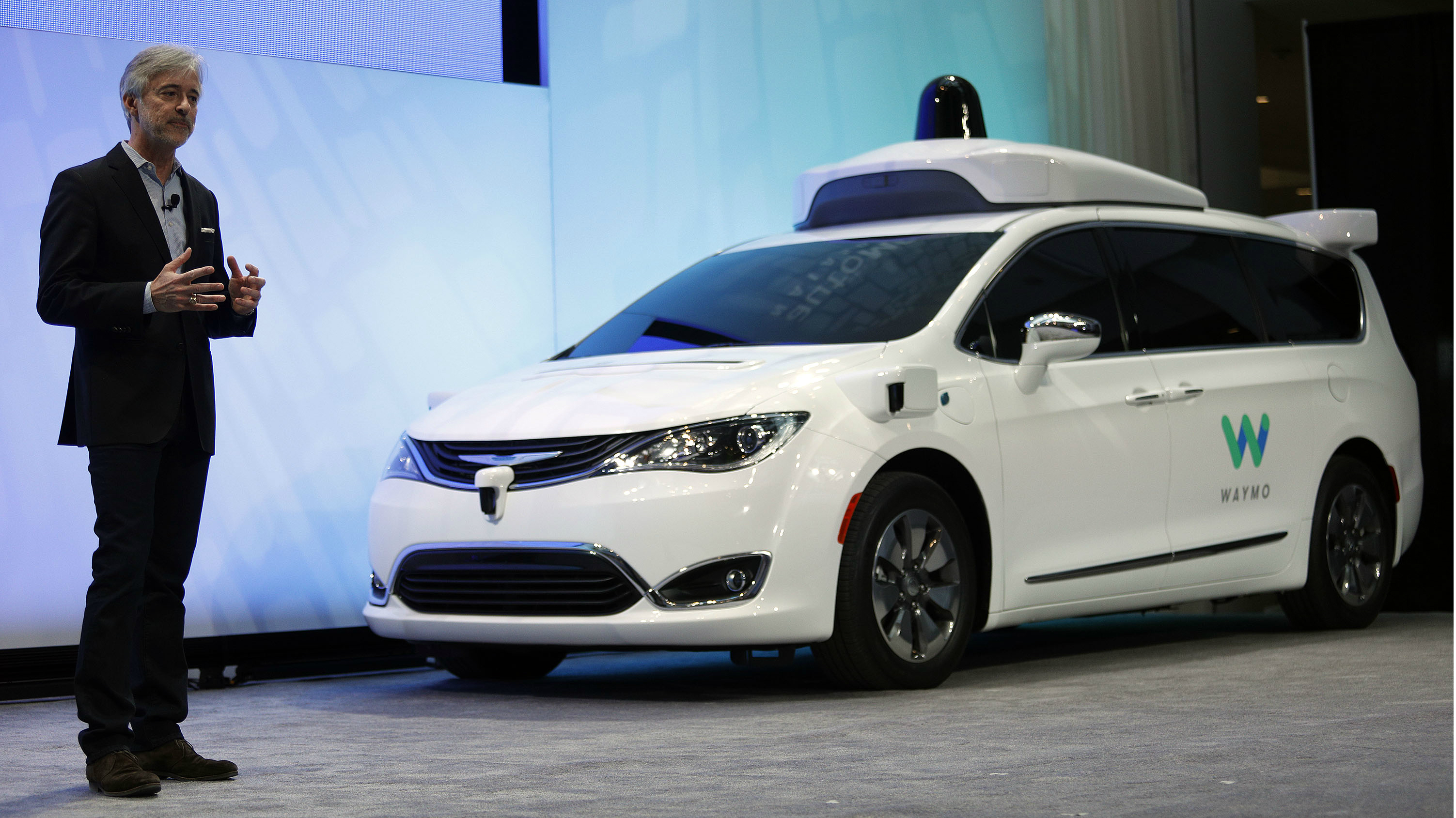Driverless cars: What do the different autonomy levels mean?
The rise of self-driving cars is set to revolutionise our roads by allowing vehicles to 'make decisions themselves'

A free daily email with the biggest news stories of the day – and the best features from TheWeek.com
You are now subscribed
Your newsletter sign-up was successful
Driverless vehicles are becoming ever more prominent in the news, with many car manufacturers developing platforms that will soon be available to the public.
But there is already a range of vehicles on sale with driverless systems that are partly automated. Some of these offer assistance such as driverless lane change and autonomous emergency braking.
To help clarify how autonomous a self-driving car is, the Society of Automotive Engineering (SAE) in the US has developed a five-tier hierarchy that categorises driverless systems on how dependent they are of human interaction.
The Week
Escape your echo chamber. Get the facts behind the news, plus analysis from multiple perspectives.

Sign up for The Week's Free Newsletters
From our morning news briefing to a weekly Good News Newsletter, get the best of The Week delivered directly to your inbox.
From our morning news briefing to a weekly Good News Newsletter, get the best of The Week delivered directly to your inbox.
Here are the five levels of autonomy and how they are applied to the car industry:
Level 1
The first level of autonomy means the driver remains in control of the car the entire time, says TechRepublic, but functions such as steering and accelerating can be controlled by the vehicle.
Level 1 autonomous systems have been available on production cars for several years, as features such as self parking and lane assistance are considered basic driverless functions.
A free daily email with the biggest news stories of the day – and the best features from TheWeek.com
Level 2
Driverless cars that require occupants to pay attention to their surroundings and be prepared to "take control of the vehicle in specific situations" are classed as Level 2 systems, says AutoExpress.
Combining functions "of at least two pieces of technology", such as steering or pedal inputs, is how these cars take control from the driver.
Tesla's Autopilot is classed as Level 2 as it can automatically brake and steer. The driver, however, is required to keep their hands on the wheel in case they need to regain control.
Level 3
A Level 3 autonomous system is capable of monitoring "the driving environment around them", reports Wired, allowing vehicles to "make decision themselves".
These cars "will be capable of seeing a slower moving vehicle in front of it before taking the decision to overtake" without the need of a driver.
Audi's new A8 saloon is expected to be the first production car to offer Level 3 autonomy, giving it the ability to drive itself in certain situations at speeds of up to 37mph. It goes on sale later this year and will receive more driverless features through over-air updates.
Level 4
Cars with onboard computers that can handle tasks like indicating, braking and steering at the same time are classed as Level 4 systems, says Business Insider.
A Level 4 car is "officially driverless in certain environments" and "can drive safely on its own even if a driver chooses not to intervene when asked".
BMW says its iNext driverless car, which is on course to reach production in 2021, will have elements of Level 4 systems, although details of these functions have yet to be revealed.
Level 5
A Level 5 autonomous car on the SAE's hierarchy doesn't need a driver at all, says Wired. Cars with these systems "don't need any pedals, steering wheels, or controls for a human to take charge".
Google's sub-brand Waymo is currently developing a Level 5 driverless car. The company recently offered test drives to a select few members of the public in the US.